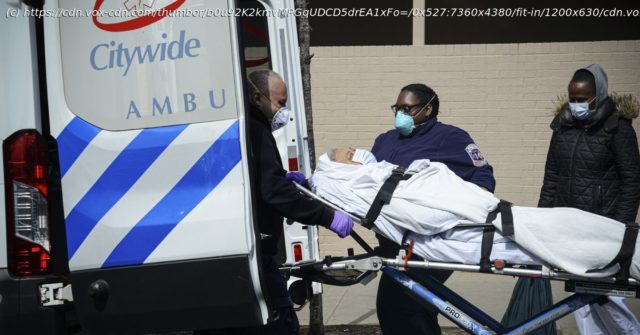We are only beginning to understand the direct, and indirect, consequences of Covid-19.
The US health system is enduring a shock during the coronavirus pandemic — and the aftershocks will continue to be felt long after the virus itself has been contained.
Hospitals nationwide have canceled elective surgeries en masse. Visits to primary care doctors and specialists have dropped off precipitously. Now the US economy is experiencing levels of unemployment not seen since the Great Depression and millions of people have lost their employer-sponsored health insurance.
I posed a simple question to a few different experts who study population health: Have we ever seen disruption to medical care like this before?
“I don’t recall there ever being a disruption to the health system like we’re seeing,” Cheryl Damberg, the director of the RAND Center of Excellence on Health System Performance, told me. “We’ve had recessions where people have lost insurance and there is more uncompensated care, but nothing like canceling surgeries and declines in ambulatory visits.”
Others concurred. “I do not believe there has ever been a similar hiatus,” Mark Cullen, director of Stanford University’s Center for Population Health Science, told me, “and the short answer is that yes, it will take some time before we will know the total health impact, or even to effectively estimate some”
It is, unfortunately, an unplanned natural experiment. Rifat Atun, a professor studying global health systems at Harvard University, gave me a useful way of understanding the sprawling effects that a major trauma like the coronavirus pandemic will likely have on Americans’ health. You can put them, for starters, into four broad categories.
1.3 million cases. Nearly 80,000 people dead (at a minimum). Tens of thousands of people hospitalized — we aren’t even sure how many. At least 86,000, according to a tracking project at the University of Minnesota.
It may be easy to become numb to them, but those numbers we have been tracking for weeks are the first and most direct impact of the coronavirus. We should also be bracing ourselves for second, third, fourth waves of the outbreak. The virus itself won’t be fully neutralized until there is a vaccine or treatment.
And those acute effects could, somewhat paradoxically, linger with us for a long time. Just because people have recovered from Covid-19 doesn’t mean their health has gone back to normal.
As Lois Parshley wrote for Vox recently, the long-term health consequences of this disease are just starting to come into focus:
Because Covid-19 is a new disease, there are no studies about its long-term trajectory for those with more severe symptoms; even the earliest patients to recover in China were only infected a few months ago. But doctors say the novel coronavirus can attach to human cells in many parts of the body and penetrate many major organs, including the heart, kidneys, brain, and even blood vessels.
Home
United States
USA — Science 4 aftershocks of the coronavirus pandemic that will be felt for years






